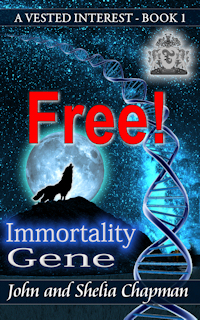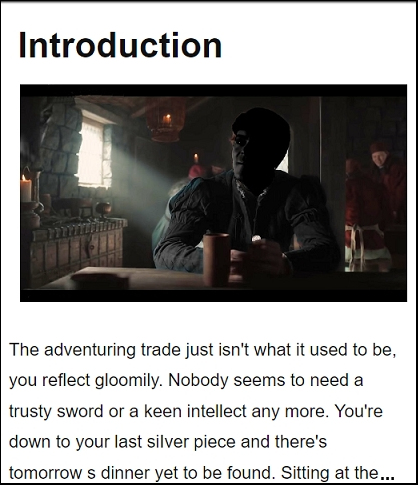The Choice - Publish Traditionally or Self-Publish
You have a decision to make.
- You can try to get your book published by the traditional publishers as a printed book.
- You can go-it-alone and do all the work by becoming an independently published (indie) author.
- You could pay a vanity press to print your book but, please don’t get fooled into doing this!
Before you decide, you need to know the timescale, possible costs and frustrations involved.
| Traditional | Self-Publishing |
|---|---|
| You’ll probably need to find a literary agent. They’ll take 15-20% of your earnings if they accept you. | No agent needed. You keep all your earnings. |
| Your printed books will cost less making them more likely to sell. | You’ll be using print on demand services for paper books which makes them slightly more expensive. |
| Your agent will do the work of finding a publisher. | You can skip producing a printed book if you wish. |
| You may get an advance from a publisher. This is rare for a new author today though. | No advance. You get a royalty for books sold. |
| Your publisher will have a good idea of the price to charge. | Price of print and ebooks is up to you. Getting it right can be tricky. |
| It will probably take at least two years to see your book on the bookshelves | It’s possible (but unlikely) to do the whole thing in a week – I did this once with a book just to see if it was possible. |
| Your book may go out of print before you ever earn royalties | Your book will never be out of print unless you make it so. |
| You’ll make about 15% in royalties once any advance has been paid for. | Your royalty will be 8 to 25% of the sale price of print books and 35 – 85% of the sale price for ebooks. |
| You might get guidance in promoting your book from your agent and publisher | You won’t get much in guidance, but you are reading this so that’s a start. |
| The royalties offered from ebook sales will be pathetic and the ebooks will be expensive. | The royalties for ebooks will be high. Your ebooks will be more affordable. |
| You sign over copyright to the publisher. | You will always own the copyright |
| It can be very hard to find an agent let alone a publisher. | No agent or publisher needed. |
I haven’t produced information about using a vanity press to print your book because I don’t know of any author who is happy with using their services. You can recognise these businesses because they ask you to pay them money. Before you even think of using one, try searching for the firm name and ‘scam’.
Before you make your decision, it might be an idea to read about each option further.
If you find this guide useful...
Can you help me out?
If you find these pages useful you can return the favour by downloading a FREE ebook from Amazon - even if you don't read it, it will help our rankings! I think you'll probably like it though.
It's the first book of a series of 9 books (so far) which tell the story of how life on Earth was saved from a cataclysmic extinction when a rogue planetoid collides with Earth in 7141. This first book deals with how humanity was made immortal, giving us the incentive to do something about an event so far in the future.
Take a touch of humour, add some genetic science and nanotechnology. Steep with conspiracy and stir in murder and despair. Season with romance between three people in a secret location. Garnish with morality.
The result is 'Immortality Gene', the first in a novel series by John and Shelia Chapman. The ebook of book 1 is FREE and available at multiple retailers

Get it from your favourite store
Do you like time-travel stories? I do. Here's one I recommend. The Clay Lion (The Clay Lion Series Book 1)
by @AmalieJahn
https://amzn.to/4fGFiQW
My review https://amzn.to/3WQlfbp
Traditional Publishing
If you choose this route your first step should be to find an agent to act on your behalf with publishers. Why use an agent? They take 15% of your earnings; more in some cases. The answer is simple. They are liked by conventional print publishers since they filter out much of the poor quality writing publishers would rather not see. They are liked by authors because they negotiate a better deal with publishers than the author could get. This effectively pays their fees and often more. An agent can be expected to know the publishing industry and which publisher will be best for your book.
Agents act on your behalf, not the publisher. It’s in their interest to get the best deal possible for you. They have connections and may also be able to get you TV and Movie deals. There's also the possibility of earnings from T-shirts, mugs, soundtracks etc.
Taking the Independent (Self-Publishing) Route
Once you decide to become an ‘Indie’ author, you’ll need to make a decision:
- Do you want to sell printed copies of your book?
- Do you want to sell ebooks?
- Do you want to sell both?
To me the obvious step is to do both. So now we’ll see what is involved. First, however, don’t let anyone tell you that an independently published author is not a proper author.
Stephen King publishes independently
John Locke publishes independently
Amanda Hocking publishes independently
All have sold over a million books without an agent. Indie authors now appear regularly on the New York Times lists of best-sellers.
Remember - If you self-publish YOU are responsible for editing, cover design, formatting print and ebooks, publishing at a print-on-demand supplier, Then publishing ebooks at Amazon and elsewhere and finally promoting the books.
Or maybe a free online interactive adventure story?
Back in 1982 early text only adventure games were being written for home computers. One such game was 'Castle of Riddles' written by Peter Killworth and published by Acornsoft. Now it's been re-written and greatly expanded with added images and sound. Play it on your computer, tablet or even a phone.
Check it out at https://jaydax.co.uk/corr

Hint: If you find a dirty mirror - clean it, but not before...
Next step: Before you start publishing - a warning.
As an Amazon Associate, I earn from qualifying purchases.